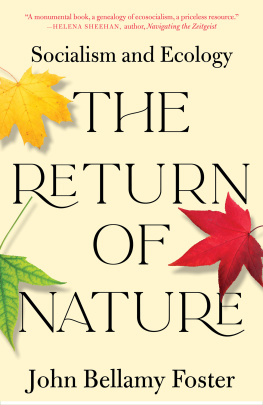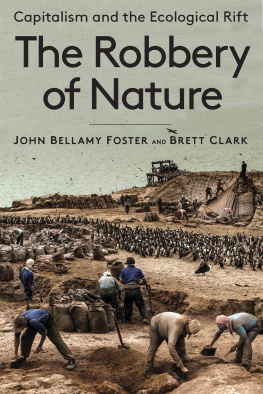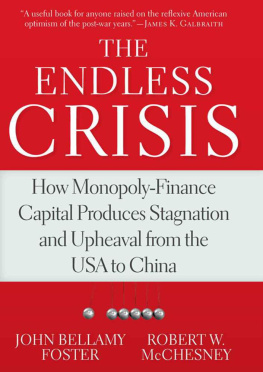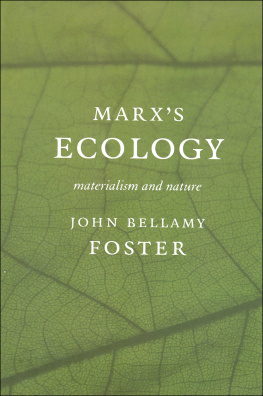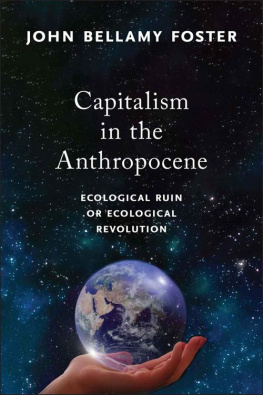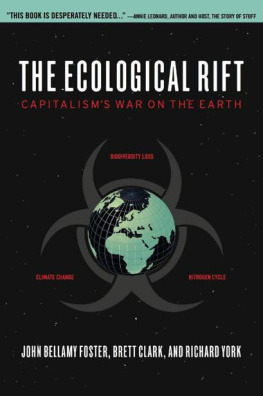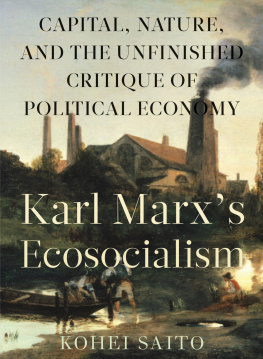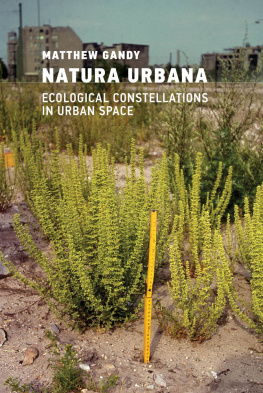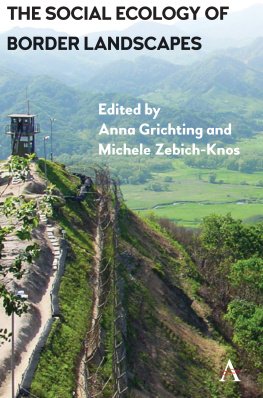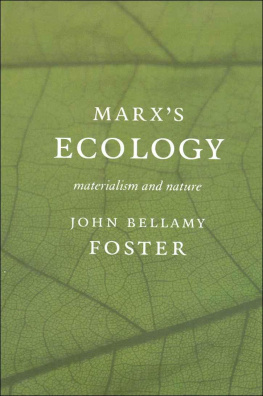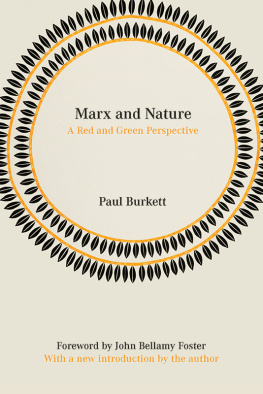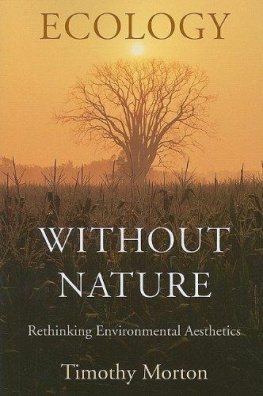
THE RETURN OF NATURE
The Return of Nature
Socialism and Ecology
JOHN BELLAMY FOSTER
MONTHLY REVIEW PRESS
New York
Copyright 2020 by John Bellamy Foster
All Rights Reserved
Library of Congress Cataloging-in-Publication Data available from the publisher.
ISBN 978-158367-836-7 cloth
Typeset in Bulmer Monotype
MONTHLY REVIEW PRESS, NEW YORK
monthlyreview.org
5 4 3 2 1
Contents
Part One
BEYOND MARX AND DARWIN
Part Two
ENGELSS ECOLOGY
Part Three
TOWARD A CRITICAL HUMAN ECOLOGY
To John Mage
Preface
Climate change, the Sixth Extinction, and the COVID-19 pandemic arising from a novel coronavirus, all testify to abrupt changes in humanitys relation to the earth in the twenty-first century. The old notion of the conquest of nature is being replaced by a radical conception of the need to restore the human social metabolism with nature while promoting genuine human equality. Although revolutionary in its challenge to capitalism, this conception is not new, rather it is traceable to the long struggle for socialism and ecology beginning in the nineteenth century.
The present work begins where another left off. Marxs Ecology, which I completed in 2000, ended with the deaths of Darwin and Marx in 1882 and 1883. The Return of Nature starts with their funerals. Its title refers to the reemergence of the natural-material or ecological realm within critical social analysis, where the complex, reflexive relation of nature to human production and reproduction has all too often been downplayed. To be sure, the dialectical interplay of society and nature has never been altogether absent from historical materialism, where it was present at the outset in the foundational works of Karl Marx, Frederick Engels, and William Morris. Nevertheless, for socialist theory as for liberal analysisand for Western science and culture in generalthe notion of the conquest of nature and of human exemption from natural laws has for centuries been a major trope, reflecting the systematic alienation of nature. Society and nature were often treated dualistically as two entirely distinct realms, justifying the expropriation of nature, and with it the exploitation of the larger human population. However, various left thinkers, many of them within the natural sciences, constituting a kind of second foundation of critical thought, and others in the arts rebelled against this narrow conception of human progress, and in the process generated a wider dialectic of ecology and a deeper materialism that questioned the environmental as well as social depredations of capitalist society.
The thinkers who are the focal point in this book are quite varied, stretching from the left Darwinian E. Ray Lankester and the Romantic-Marxist Morris in Part One, to the classical historical materialist Frederick Engels in Part Two, to the Fabian-style socialist ecologist Arthur Tansley, the red scientists J. D. Bernal, J. B. S. Haldane, Joseph Needham, Hyman Levy, and Lancelot Hogben, and the cultural materialist Christopher Caudwell in Part Three. Others are taken up in the Epilogue. But despite their diversity as thinkers all fell into the broad category of socialist materialists concerned with the dialectical interpenetration of nature and society, and the complex relations of evolution and emergence. Central to each of them was a dialectical naturalism that foreshadowed todays systems ecology and Earth System analysis.
This is a story that concerns art as well as sciencethe two principal means of ascertaining our sensuous relation to the world as a whole. It is the synthesis of the scientific and aesthetic critiques of capitalism that constitutes the basis of the modern ecological critique, leading to the pivotal notion of sustainable human development. As Epicurus said in antiquity, The justice of nature is a pledge of reciprocal usefulness, neither to harm one another nor be harmed.
The present book has been nearly two decades in gestation and has involved research in numerous archives. In this respect, I would like to acknowledge the following collections of papers upon which I relied to varying degrees for much of the analysis that follows: (1) the E. Ray Lankester Scientific Papers Collection, Marine Biological Association Library, Marine Biological Association, Plymouth, England; (2) the Hyman Levy Collection, 19351968, Charles Deering McCormick Library of Special Collections, Northwestern University Library, Evanston, Illinois; (3) the H. G. Wells Papers, 18551946, University of Illinois, Urbana; (4) the J. B. S. Haldane Papers, Wellcome Library, University of London; (5) the Joseph Needham Papers and Correspondence, Cambridge University Library; (6) the J. D. Bernal Scientific and Personal Papers, Cambridge University Library; (7) the Christopher St. John Sprigg (Christopher Caudwell) Collection, Harry Ransom Center, University of Texas, Austin; and (8) the Linus Pauling Collection, Special Collections and Archives, Oregon State University, Corvallis, Oregon. I would like to thank Liz Stanley, principal investigator of the online Olive Schreiner Letters Project, for answering my questions with respect to the Schreiner-Lankester correspondence. The bulk of the research was conducted through the University of Oregon library, with the help of the excellent regional Summit library system, and Interlibrary Loan. I owe a debt to the University of Oregon librarians and staff for putting up with my incessant demands. The importance of such backstage work by librarians is often invisible and yet constitutes an invaluable social contribution without which serious scholarship would be rendered much more difficult.
A large part of chapter 4 was published in 2017 as William Morriss Romantic Revolutionary Ideal: Nature, Labour and Gender in News from Nowhere in a special issue on revolution for the Journal of William Morris Studies. In the process, Owen Holland, the gifted editor of JWMS, improved it in both style and content. In one of my visits to London I received a warm welcome from members of the William Morris Society at Kelmscott House, Morriss home in Hammersmith, the coach house and basement of which are now a museum.
I have greatly benefited in the research and editing of this book from my association over the years with a number of extremely talented Monthly Review research assistants, all of whom have gone on to carry out important scholarly research and build careers of their own, including Brett Clark, Hannah Holleman, Ryan Wishart, Jordan Besek, and Intan Suwandi. All of them assisted me at various stages in the long process of producing this book, helping with gathering materials, copyediting, fact checking, and through the critical feedback they often provided. I am grateful especially to Intan for assisting me with the big task of editing at the end. Brett and Hannah both co-authored a number of writings with me at various times in the years in which I was working on this book, which deeply affected my thinking here.
Paul Burkett and I have collaborated on issues of Marxian ecology since the mid-1990s, feeding into his book Marx and Nature in 1999 and my Marxs Ecology in 2000, and finally our co-authored Marx and the Earth in 2016. Although Paul was not directly involved in the research here, the shared understanding of ecological materialism that we have developed over the years is, I believe, inscribed on every page of this book.
Fred Magdoffs presence too is to be found throughout this book. Fred and I co-authored and co-edited three books and numerous articles while I was working on this project, including our 2011
Next page
